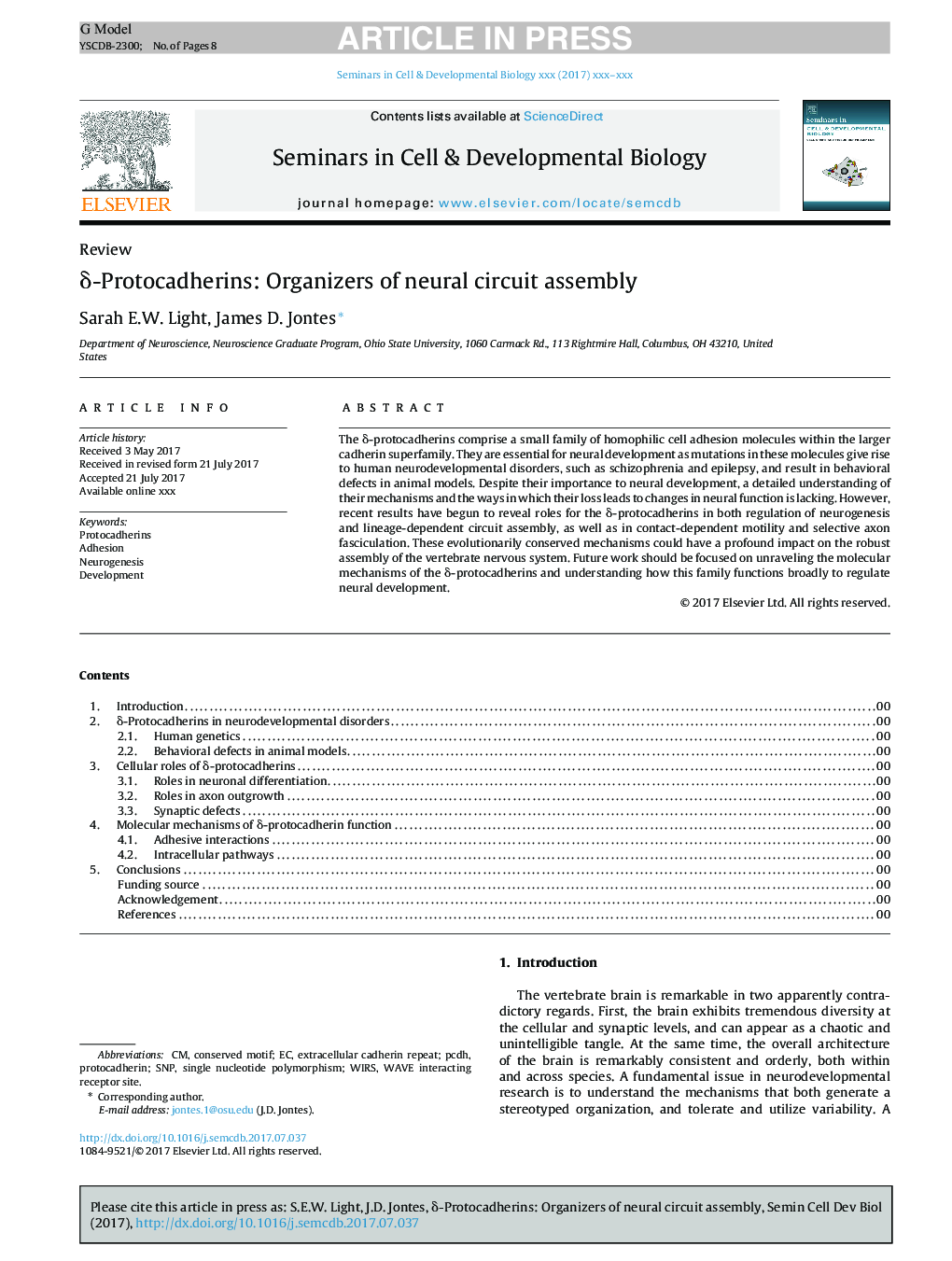| Article ID | Journal | Published Year | Pages | File Type |
|---|---|---|---|---|
| 5534814 | Seminars in Cell & Developmental Biology | 2017 | 8 Pages |
Abstract
The δ-protocadherins comprise a small family of homophilic cell adhesion molecules within the larger cadherin superfamily. They are essential for neural development as mutations in these molecules give rise to human neurodevelopmental disorders, such as schizophrenia and epilepsy, and result in behavioral defects in animal models. Despite their importance to neural development, a detailed understanding of their mechanisms and the ways in which their loss leads to changes in neural function is lacking. However, recent results have begun to reveal roles for the δ-protocadherins in both regulation of neurogenesis and lineage-dependent circuit assembly, as well as in contact-dependent motility and selective axon fasciculation. These evolutionarily conserved mechanisms could have a profound impact on the robust assembly of the vertebrate nervous system. Future work should be focused on unraveling the molecular mechanisms of the δ-protocadherins and understanding how this family functions broadly to regulate neural development.
Keywords
Related Topics
Life Sciences
Biochemistry, Genetics and Molecular Biology
Cell Biology
Authors
Sarah E.W. Light, James D. Jontes,
